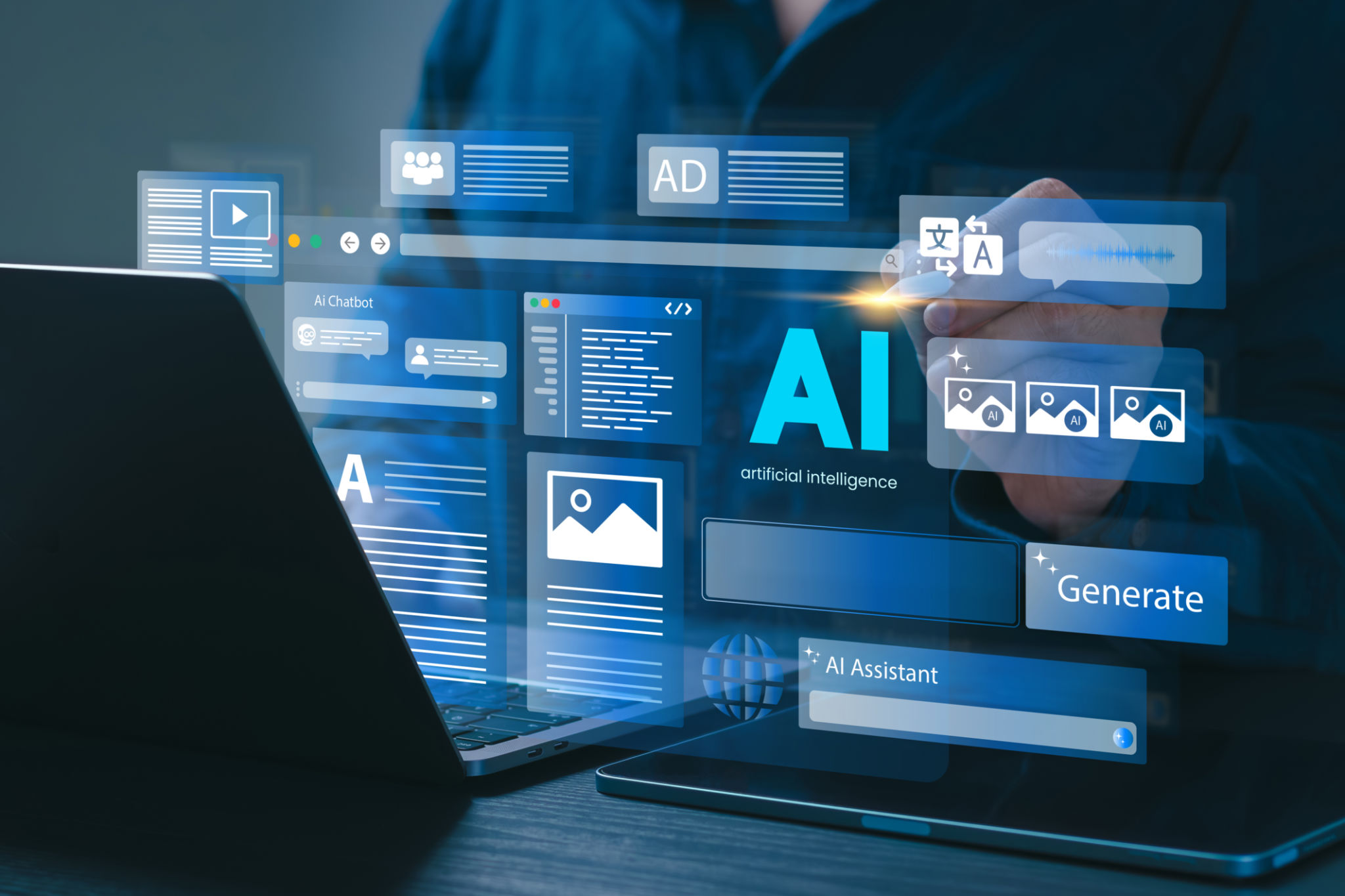Exploring the Future of Artificial Intelligence Applications in Content Generation
PW
Introduction to AI in Content Generation
Artificial Intelligence (AI) is rapidly transforming various industries, and content generation is no exception. As AI technologies advance, they are becoming increasingly adept at creating engaging and relevant content across different platforms. This evolution is not just about automation but also about enhancing creativity and efficiency in the content creation process.
The future of AI in content generation promises to revolutionize the way we produce and consume information. From generating articles and blog posts to creating compelling marketing copy, AI applications are set to redefine the landscape of content creation.

The Role of Natural Language Processing
At the heart of AI-driven content generation is Natural Language Processing (NLP). NLP enables machines to understand, interpret, and generate human language in a way that is both meaningful and coherent. This technology allows AI systems to analyze vast amounts of data, extract relevant information, and create content that is contextually accurate and engaging.
With advancements in NLP, AI can now create content that closely mimics human writing styles, making it difficult for readers to distinguish between human and machine-generated content. This capability opens up new possibilities for businesses looking to scale their content strategies efficiently.
Advantages of AI-Generated Content
AI-generated content offers numerous benefits. Here are a few key advantages:
- Speed and Efficiency: AI can produce content at a rapid pace, enabling businesses to meet tight deadlines and maintain a consistent publishing schedule.
- Cost-Effectiveness: Automating content creation reduces the need for a large team of writers, lowering operational costs.
- Personalization: AI can tailor content to specific audiences by analyzing user data and preferences, resulting in more targeted and effective communication.

Challenges and Ethical Considerations
Despite its potential, AI in content generation also poses certain challenges and ethical considerations. One major concern is the quality and originality of AI-generated content. While AI can create coherent text, it may lack the depth and creativity that human writers bring to their work.
Another significant issue is the potential for misinformation. As AI systems rely on existing data, there is a risk of perpetuating biases or inaccuracies present in the source material. Ensuring ethical standards and accuracy in AI-generated content is crucial to maintaining trust with readers.
The Future of Human-AI Collaboration
Looking ahead, the future of content generation may lie in a collaborative approach between humans and AI. By combining the strengths of both, businesses can leverage AI for rapid content production while relying on human insight for creativity and strategic thinking.
AI tools can assist writers by providing data-driven insights, suggesting topics, and even drafting initial versions of articles. In this symbiotic relationship, human writers can focus on refining and adding value to the content, ensuring it resonates with the target audience.

Conclusion
The future of AI in content generation is promising, with the potential to transform how we create and consume media. As technology continues to evolve, it will undoubtedly play an increasingly important role in shaping the digital landscape.
By embracing AI while addressing its challenges, businesses can harness its capabilities to enhance their content strategies, driving engagement and growth in an ever-competitive market. The key will be finding the right balance between technological innovation and human creativity.